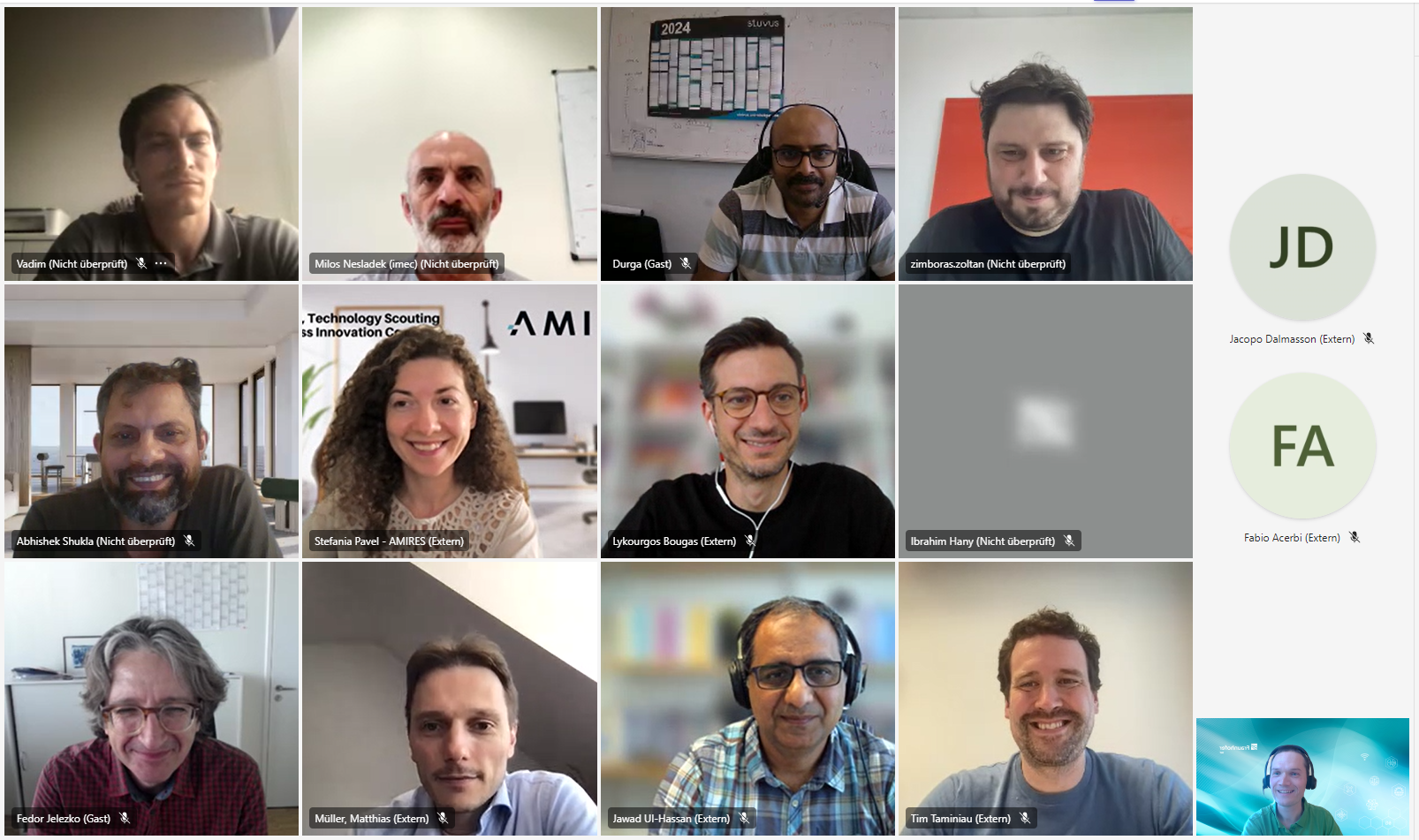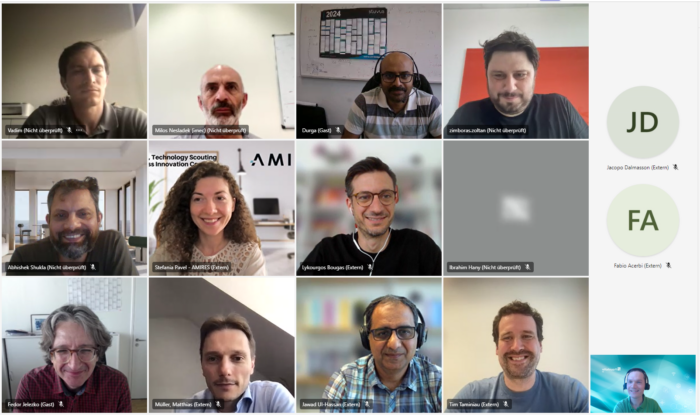
SPINUS Month 6 Online Meeting: a journey of progress, milestones met, and challenges ahead
June 28, 2024The SPINUS project held its Month 6 Online Meeting on June 28, 2024, marking the 6-month checkpoint in the project’s 4-year long journey. This online event brought together the 12 partner organisations to review progress, address challenges, and strategize the way forward. The meeting underscored the collaborative spirit and commitment of the consortium in line with both scientific excellence and shared European values.
Martin Koppenhöfer of IAF, as SPINUS Coordinator, opened the meeting with a warm welcome and facilitated adjustments to the agenda, ensuring a comprehensive and focused discussion. His initial presentation highlighted IAF’s progress and outlined plans for the next six months, setting the tone for the rest of the meeting.

IAF progress update: Martin Koppenhöfer’s detailed presentation covered both project management and scientific developments, answering key questions from partners on process tomography, error levels, system stability, and zero-noise extrapolation.
AMIRES progress update: Stefania Pavel of AMIRES presented their achievements, including the submission of two deliverables in the first six months. She led a lively discussion on the publication notice template, addressing various concerns and suggestions from the partners as the consortium already boasts multiple publications in its first six months.
UULM Theoretical and Experimental Groups progress updates: Martin B. Plenio and Fedor Jelezko provided insights into their respective groups’ progress. Their presentations sparked engaging scientific discussions, with partners showing interest in collaborative efforts, particularly in using PulsePol and investigating NV-NV pairs.
Wigner RCP, USTUTT, and FZJ progress updates: Updates from Zoltán Zimborás, Durga Dasari, Vadim Vorobev, and Matthias Müller focused on readout limitations in NV systems and tensor network simulations. The partners convened to work together on a collaborative white paper hereby.
UHASSELT, ULIU, TUDELFT, and DTU progress updates: Presentations from Miloš Nesládek, Jawad Ul-Hassan, Tim Taminiau, and Martin Koppenhöfer (on behalf of Alexander Huck) provided comprehensive updates and plans for the next six months. These sessions also featured robust scientific discussions on technical topics like state tomography and spin group selection.
FBK and QB progress updates: Alberto Gola and Lykourgos Bougas shared their progress, emphasizing their ongoing collaboration with the University of Trento. The dependency of QB’s work on FBK’s advancements was a focal point, showcasing the interconnected nature of the project’s tasks.
At the end of the day-long call, the consortium’s proactive discussions and strategic planning concluded that the project is on track for continued success in the coming months. The partners will continue to work remotely until the Month 12 meeting when the consortium will convene in person in early 2025.